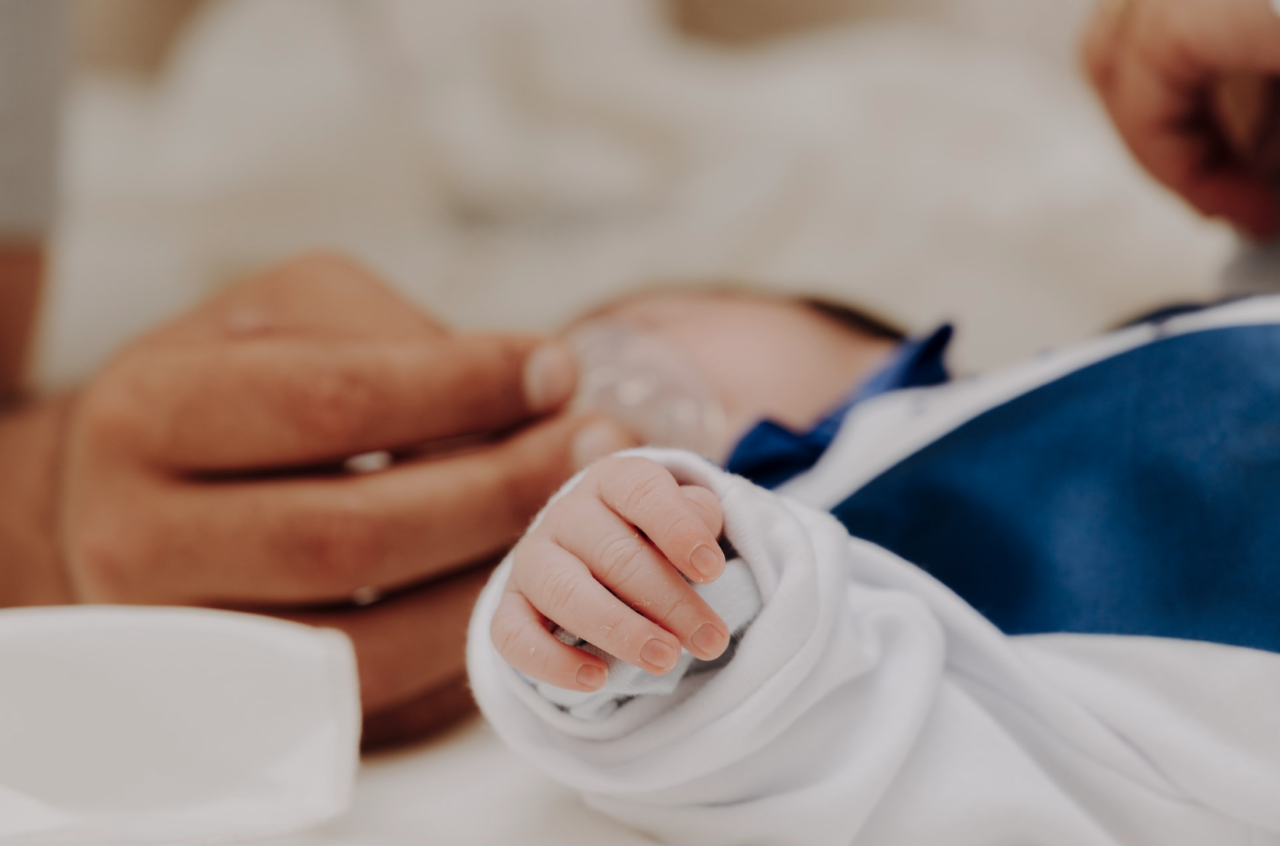 It's 2 a.m. The unit is quiet. The only sounds are heart monitors beeping and the occasional cry of a baby. The other nurses assigned to this area and I are whispering, sharing stories, and the usual night-shift giggles that come when you've had too much caffeine and not enough sleep. The charge nurse enters our bay—a woman is in labor and the baby is coming much too early. It's my turn to take the admission.
It's 2 a.m. The unit is quiet. The only sounds are heart monitors beeping and the occasional cry of a baby. The other nurses assigned to this area and I are whispering, sharing stories, and the usual night-shift giggles that come when you've had too much caffeine and not enough sleep. The charge nurse enters our bay—a woman is in labor and the baby is coming much too early. It's my turn to take the admission.
A half hour passes before we hear the transport team. Multiple staff members rush in. A physician picks up the baby and transfers him to me; it only takes one hand to cup the little body as my other hand holds in place a breathing tube smaller than a drinking straw. I realize the irony of just how enormous my job is and what I am entrusted to do and be every day. As I lay that tiny baby in the incubator, I notice every rough patch on my palms, and I pray that I won't leave marks or cause pain to this little life that’s been entrusted to me for the night.
Fast forward three years. That tiny baby is now an energetic boy. He doesn't recognize me, but his mother does. She fiercely hugs and thanks me for being there to protect her child on the night of his birth. I smile, watching the boy race around and laugh, a miracle considering how tenuously his life started. The mom pulls out her phone to show me a picture from that night three years ago, and tears fill my eyes. The picture shows her newborn son in one of my hands, the breathing tube held in place by my other hand. She hugs me tightly again and, with her son, she walks away, leaving me thankful for miracles that come in all shapes and sizes.
I have nurses' hands. They're coarse, rough, and calloused. My nails are short. They’re rarely painted and when they are, the varnish doesn't last long due to scrubbing in and countless pumps of hand sanitizer. My hands are strong from seizing handrails as I race up or down stairs when a life is at stake and every second counts. My fingers are sure; they can bend and twist a 26-gauge needle into the scalp of a baby born 16 weeks too soon. These fingers are sensitive to feel the faintest pulse, able to discern the difference between a vein and a tendon or scar tissue.
Too many times, my hands have helped lift a patient into a body bag. Sometimes these hands have often been covered by things I don't recognize. More times than not, they’ve been covered by my runny mascara because I just can't hold it in anymore as I sit in my car at the end of a day.
But somehow, even with callouses, my hands are smooth enough to calm a bawling baby and strong enough to grip the hand of a man dying alone. My hands are sturdy enough to comfort, to intertwine in prayer with those whose worlds are crashing around them. I've wiped away tears—my own and many more belonging to others. My hands have clapped in joy when a woman walks again after a stroke and when that baby born 16 weeks too early leaves the hospital.
Yes, I have nurses' hands: course, rough, and far from beautiful. And I wouldn't trade these hands for the world because God uses them. The prayer of Moses in Psalm 90 reminds me of this: “May the favor of the Lord our God rest on us; establish the word of our hands for us—yes, establish the work of our hands (verse 17, NIV).”
Morgan J. Bulk, BSN, RN, has worked in pediatric and adult critical care over the last six years. She lives in Michigan with her husband.
This article originally appeared in the Practicing column of the current (June/September 2020) issue of the Journal of Christian Nursing. A JCN subscription is one benefit of NCF membership—and there are more!
If you’re interested in writing for JCN, email Senior Associate Editor Cathy Walker.
Add new comment